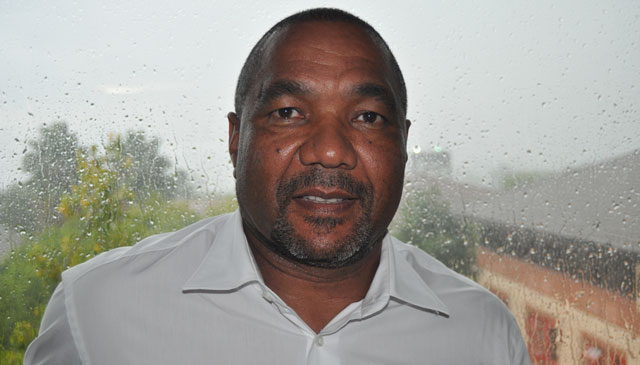
TopTV’s acting CEO, Eddie Mbalo, looked relaxed for someone who had been in the hot seat for eight months.
He was thrust into the spotlight when the pay-TV broadcaster’s founding chief, Vino Govender, left in February. The broadcaster maintains the separation was amicable, but it is clear from Mbalo’s commentary on the state of the business that all was not well with how TopTV was being run.
Mbalo, the former company chair, has been tasked with finding new equity partners to boost the broadcaster’s “war chest” as well as a new chief executive, but the former needs to happen before the latter is possible.
“It has not been easy,” he said. “The pay-TV environment is tough, considering we are a second player in a market where there is a very dominant player in MultiChoice, which had many years to build its base.”
Mbalo said finding a new equity investor has been difficult because of foreign-ownership rules, which prevent any foreign company from owning more than 20% of any broadcaster. “No one is going to come in and take a minority stake,” said Mbalo. “They want to control and drive the business.”
According to Mbalo, TopTV has sold more than 450 000 set-top boxes and satellite dishes, but only 150 000 to 160 000 of those are being used on a monthly basis. It seems consumers are eager for a cheaper alternative to MultiChoice’s DStv, but have not been sold on TopTV’s content offering and have cancelled their monthly subscriptions.
This has left TopTV in a pickle, because it subsidised the sale and instalment of all those set-top boxes and satellite dishes and is now receiving no revenue from them.
Mbalo said TopTV needs 350 000 monthly subscribers to break even, so a strategy overhaul is needed. It is no surprise, then, that TopTV recently launched SA’s first prepaid pay-TV offering. By purchasing a voucher for R109/month consumers gain access to the 29-channel Variety package. For R279, consumers get the Ultimate package, which includes 59 channels.
“We didn’t know who our customers were in the past,” said Mbalo. “We were just spraying and praying, as a colleague calls it. The majority of our customers are not banked and live in the informal economy — that is why prepaid pay-TV is the answer.”
But the bigger issue for TopTV is not a strategy change, but its competition in MultiChoice.
When TopTV launched in 2010, MultiChoice launched a bouquet called DStv Lite, which directly competes with TopTV at R99/month. “MultiChoice should not have been allowed to do that,” said Mbalo. “Our licence was issued to correct a failure in competition in the market.”
The fact that TopTV is struggling against MultiChoice is no surprise. “We saw MultiChoice closing in on any content that was available two years before TopTV launched.”
It is a well-established truth in the pay-TV sector that sport and premium content such as the latest movies are the main drivers. Because MultiChoice has secured all this premium content, it left TopTV stranded.
“Our customers tell us all the time: ‘You don’t have sport,'” said Mbalo.
Troublingly conservative
Even its attempt to launch three adult-content channels was scuppered by a troublingly conservative decision by the regulator, the Independent Communication Authority of SA (Icasa), which refused to give its permission.
But the furore over the adult content went further when union federation Cosatu expressed outrage, claiming that the channels would demean women and girls.
“Cosatu is totally opposed to such channels, which we believe will reinforce sexist attitudes and encourage the abuse of women, which is already a massive problem,” said spokesman Patrick Craven at the time.
The matter was complicated by Cosatu’s investment arm, Kopano Ke Matla Investment Company, being a shareholder in TopTV.
In a letter to Kopano CEO Collin Matjila, Cosatu demanded that TopTV scrap these channels or it would not invest further in the company.
Mbalo said TopTV is considering reapplying for the adult channels. Whether the move will be received as heatedly as before is anyone’s guess.
However, it is clear that if Icasa is serious about increasing competition in the broadcast space it needs to prevent MultiChoice from precluding competitors in the market by signing up all the sports and premium content to long-term exclusive contracts. — (c) 2012 Mail & Guardian
- Visit the Mail & Guardian Online, the smart news source




